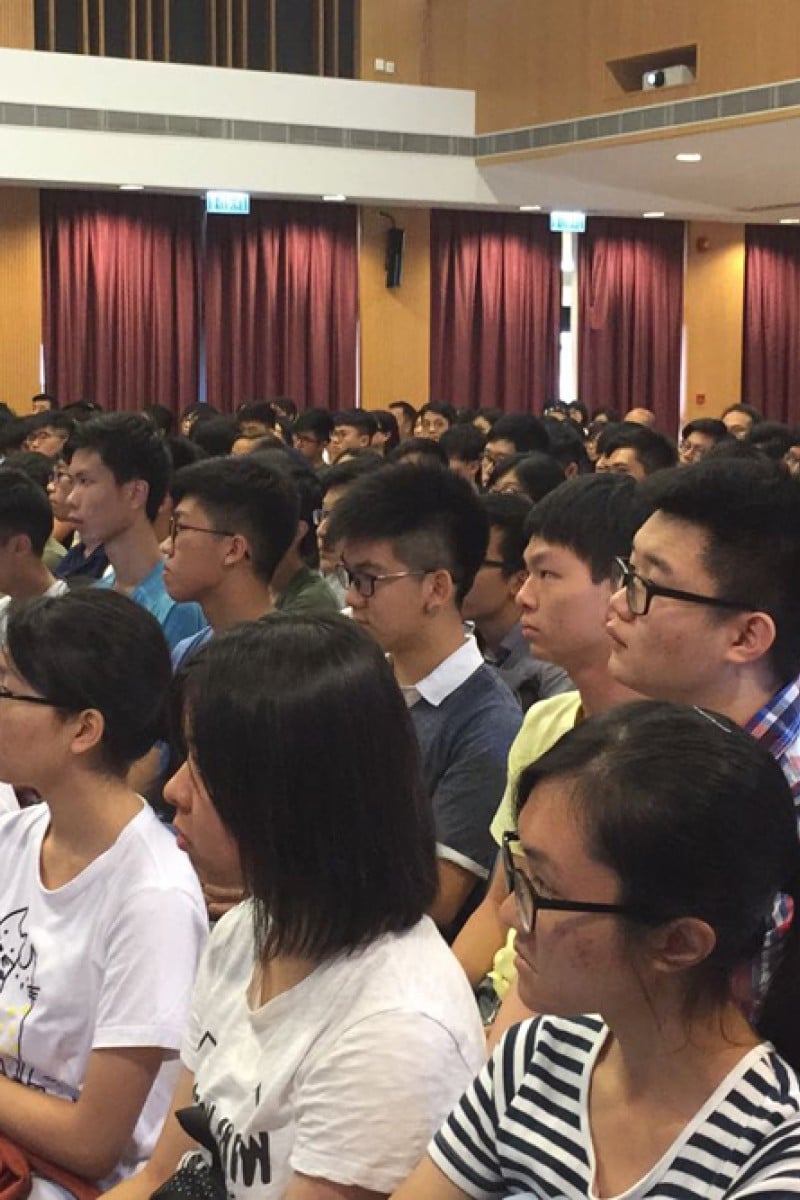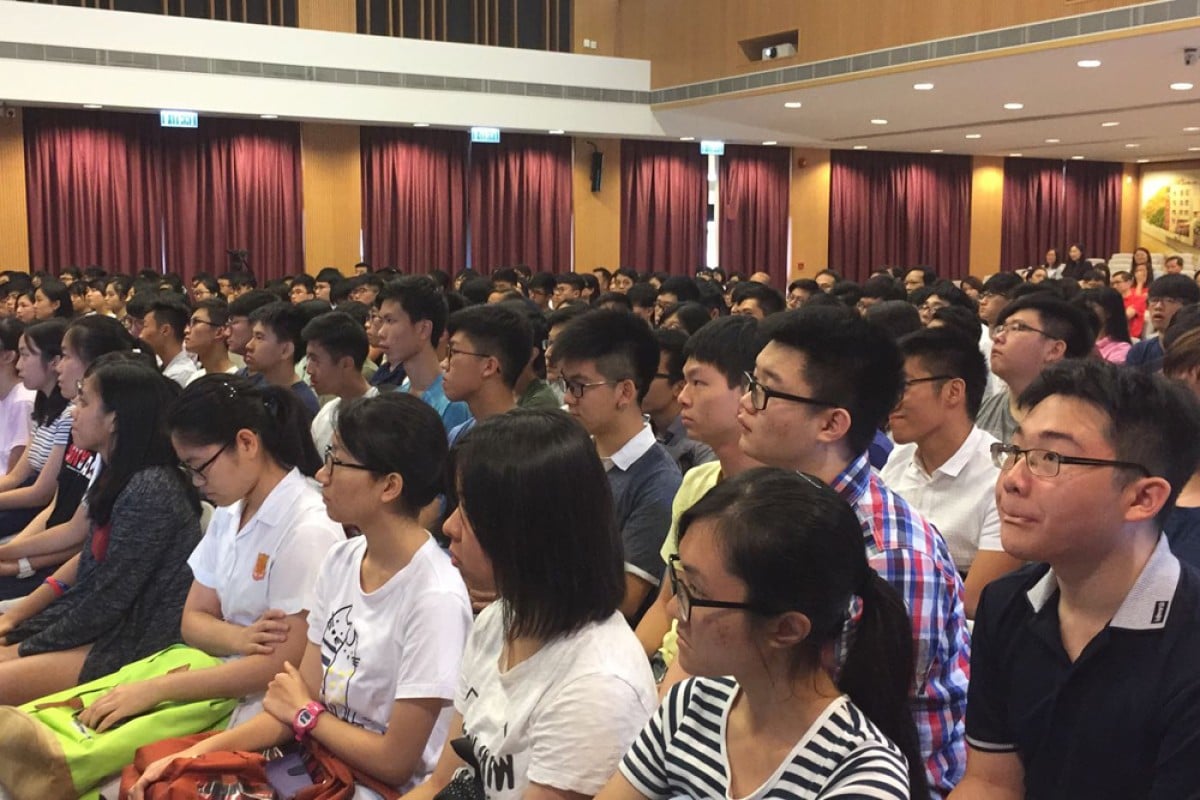
They’re big, they’re pretty important, they follow you through your working life – but if you don’t do that well in them, it’s not the worst thing that could happen to you
 2017 HKDSE students of Munsang College, Kowloon Tsai, awaiting their results this morning (July 12).
2017 HKDSE students of Munsang College, Kowloon Tsai, awaiting their results this morning (July 12).The day every Form Six student has been anticipating and dreading in equal measure has arrived – the HKDSE results are finally out today. Right now, it probably feels like the DSEs are the be-all and end-all of your educational journey, but you shouldn’t let the results define who you are as a person. They aren’t the only way, after all, to success after secondary school.
Hok Yau Club Student Guidance Centre’s director Ng Po-shing, and the University of Hong Kong’s social work and social administration professor Paul Yip talked to Young Post to provide insight into the exam, as well as providing readers with advice and tips on what to do now – whether your grades are what you expected or not.
Ng say the exams are important to Hong Kong secondary students because the results from the DSEs determine whether or not you have an easy route to university. The higher the score, the better the chance you have of being admitted into a higher-ranking university.
“If you apply for a job in the civil service, for instance,” Ng says, “there’s a list of what grades in what subjects you need to have first. If you wanted to become a police constable, you need to have Level 2 in five subjects, including Chinese and English. A lot of employers in Hong Kong look at your DSE results as a measure of your educational background and language proficiency.”
Even if you’re planning on applying to an overseas university, your results from the HKDSEs are still needed to meet the course entry requirements.
However, Yip says some students treat the HKDSEs, and how well they do in them, as a way of measuring themselves as people. “Students often defined themselves by how well they perform in the exams. This sort of thinking puts a lot of pressure on students and their parents, because in their minds, DSE results outweigh other skills and interests. It’s time to review that whole system and help people explore their strengths, and not their ability to do well in an exam,” Yip adds.
Yip says teachers and parents ought to young people some space. “Teachers focus too much on certain methods and ways to help their students achieve good grades. Parents spend a lot on things like private tutoring. Students, when faced with this sort of expectation, are more easily stressed.”
When it comes to your grades, take a moment to realise it’s not possible for everyone to get a perfect score in every subject. Some students won’t get anything near what they were predicted to achieve. If you haven’t, that’s okay. If you’ve come up with a few ideas as to what your next steps are, you can avoid panicking, regardless of if you’ve done better, worse or about as well as you expected.
If your scores are high, chances are you won’t need to change anything in your first choice [A1] spot.
If your score is around the 20 mark, here’s where planning ahead helps. Ng says you should first check to see if your third choice [A3] university is likely to offer you a place. You should also consider applying for a non-JUPAS self-financed bachelor’s degree programme or a diploma. These courses will want you to have at least 3322 in Chinese language, English language, maths, and liberal studies, as well as a Level 2 in your chosen elective.
If you get outstanding results but only a Level 2 in either English or Chinese (typically, a Level 3 in these two subjects are listed as university requirements for JUPAS applicants), Ng says you can resit the subject, or choose to study associate degrees or higher diplomas, which are an alternative route into university.
If you score less than 20, consider applying for an associate degree or a higher diploma. Other programmes, such as the Diploma of Foundation Studies at the Hong Kong Institute of Vocational Education or the Diploma Yi Jin at member institutions of the Federation for Self-financing Tertiary Education, can be considered as alternatives.
If you want to modify your programme choices on your Jupas account, you can – but be aware you can only do it between tomorrow and Saturday. You will be assigned a 24-hour period in which you can alter your choices. Remember: you can only change your programme once, and only within that 24-hour period. Log into your Jupas account from tomorrow at 9am to see which time slot you have been assigned.